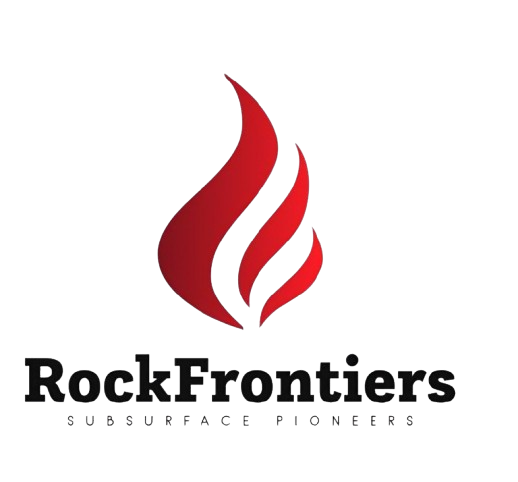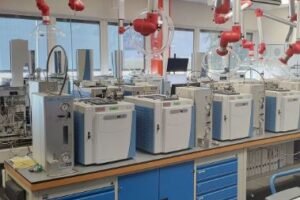📘 Course Description:
This comprehensive course provides professionals with the tools and techniques to measure, compare, and improve environmental performance using benchmarking methods. Participants will learn to evaluate their organization’s environmental KPIs against industry standards and best practices, enabling continuous improvement in sustainability and regulatory compliance.
The course blends theory and practice with real-world case studies from oil & gas, utilities, and manufacturing sectors. Emphasis is placed on identifying key metrics, collecting reliable data, applying benchmarking tools, and developing action plans to enhance environmental performance.
🎯 Learning Objectives:
By the end of this course, participants will be able to:
-
Understand the principles and benefits of environmental benchmarking
-
Identify and define key environmental performance indicators (EPIs)
-
Collect, validate, and analyze environmental data
-
Compare performance against peers, standards, or best practices
-
Develop strategies for environmental improvement and reporting
✅ Day 1: Introduction to Environmental Benchmarking
| Time | Topic |
|---|---|
| 08:30 – 09:00 | Registration and Course Overview |
| 09:00 – 10:30 | Introduction to Benchmarking Concepts & History |
| 10:30 – 10:45 | Coffee Break |
| 10:45 – 12:00 | Why Benchmark Environmental Performance? Drivers & Benefits |
| 12:00 – 13:00 | Lunch Break |
| 13:00 – 14:30 | Types of Benchmarking: Internal, Competitive, Functional, Generic |
| 14:30 – 14:45 | Break |
| 14:45 – 16:30 | Environmental Management Systems (EMS) & Benchmarking Integration |
✅ Day 2: Key Environmental Indicators (EPIs) & Data Collection
| Time | Topic |
|---|---|
| 08:30 – 10:30 | Environmental KPIs: Waste, Water, Energy, Emissions, Biodiversity |
| 10:30 – 10:45 | Coffee Break |
| 10:45 – 12:00 | Setting EPI Targets & Performance Metrics |
| 12:00 – 13:00 | Lunch Break |
| 13:00 – 14:30 | Data Collection Methods: Direct, Indirect, Automated |
| 14:30 – 14:45 | Break |
| 14:45 – 16:30 | Data Quality, Verification & Error Reduction Techniques |
✅ Day 3: Benchmarking Tools & Analysis Techniques
| Time | Topic |
|---|---|
| 08:30 – 10:30 | Environmental Performance Benchmarking Tools & Databases |
| 10:30 – 10:45 | Coffee Break |
| 10:45 – 12:00 | Using Dashboards, Scorecards, and Heat Maps |
| 12:00 – 13:00 | Lunch Break |
| 13:00 – 14:30 | Gap Analysis and Root Cause Identification |
| 14:30 – 14:45 | Break |
| 14:45 – 16:30 | Case Study: Benchmarking a Refinery’s Environmental KPIs |
✅ Day 4: Performance Comparison & Best Practices
| Time | Topic |
|---|---|
| 08:30 – 10:30 | Benchmarking with External Standards (ISO 14031, GRI, CDP, ESG) |
| 10:30 – 10:45 | Coffee Break |
| 10:45 – 12:00 | Selecting Peer Comparators: Industry, Location, Size |
| 12:00 – 13:00 | Lunch Break |
| 13:00 – 14:30 | Interpreting Results & Identifying Improvement Opportunities |
| 14:30 – 14:45 | Break |
| 14:45 – 16:30 | Sharing and Adopting Environmental Best Practices |
✅ Day 5: Action Planning & Continuous Improvement
| Time | Topic |
|---|---|
| 08:30 – 10:30 | Creating an Environmental Benchmarking Action Plan |
| 10:30 – 10:45 | Coffee Break |
| 10:45 – 12:00 | Linking Benchmarking to Environmental Reporting (ESG, GRI, SDGs) |
| 12:00 – 13:00 | Lunch Break |
| 13:00 – 14:30 | Reviewing Case Studies: Successes & Pitfalls in Benchmarking |
| 14:30 – 14:45 | Break |
| 14:45 – 16:30 | Final Workshop, Presentations, Feedback, & Certificate Distribution |
📦 Course Materials Include:
-
Benchmarking checklist and KPI templates
-
Case study workbook
-
Excel tools for data analysis and dashboards
-
Sample action plans and reporting formats
-
Access to benchmarking databases and reports
👥 Who Should Attend:
-
Environmental & Sustainability Managers
-
HSE Professionals & Engineers
-
Quality Managers & Auditors
-
Operations Managers in industrial sectors
-
Consultants & Compliance Officers





